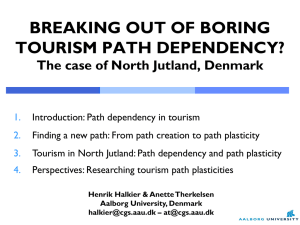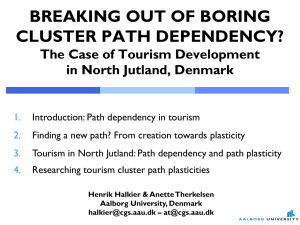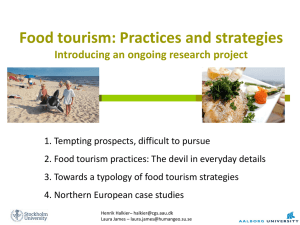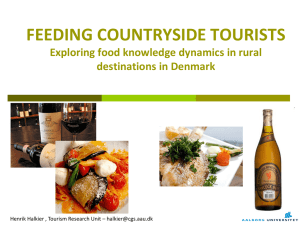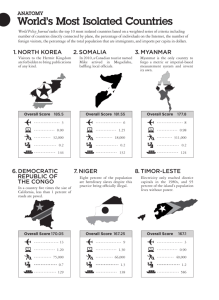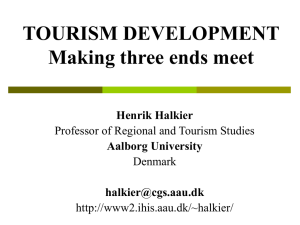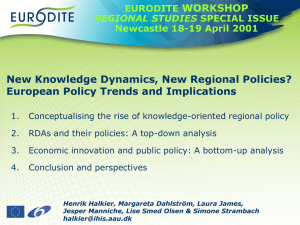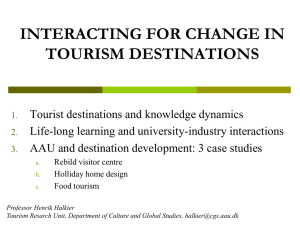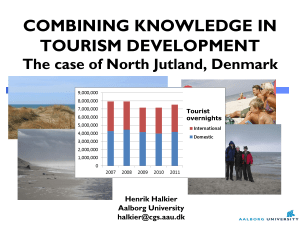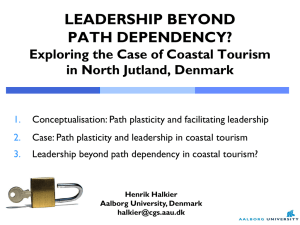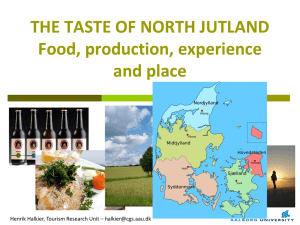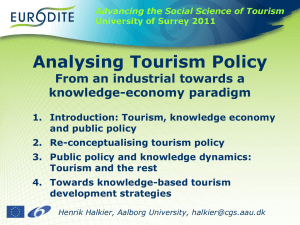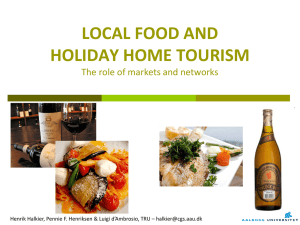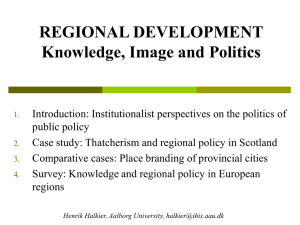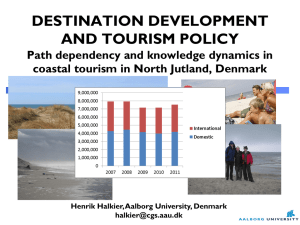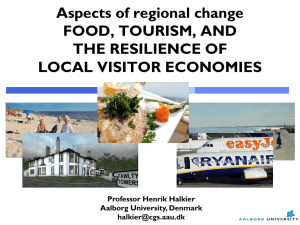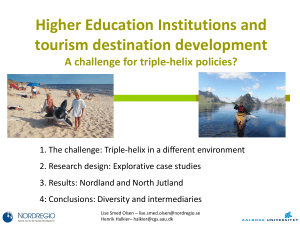TRU practice Oct 2014
advertisement
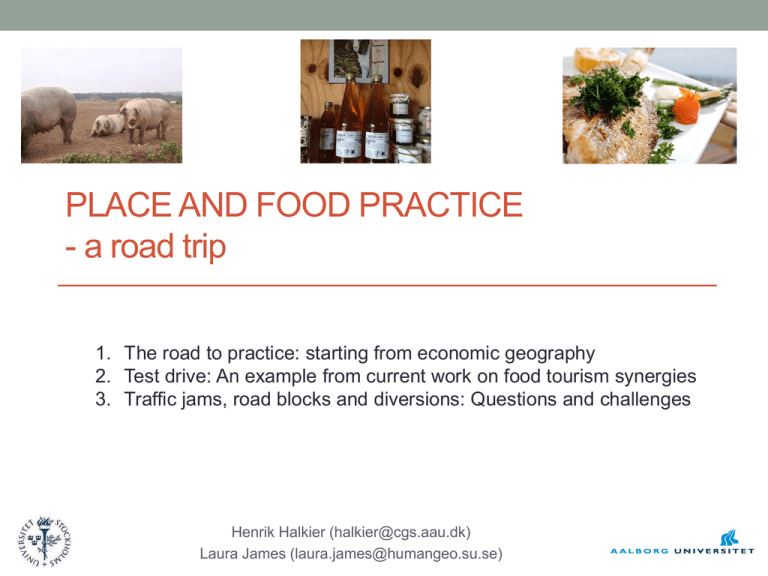
PLACE AND FOOD PRACTICE - a road trip 1. The road to practice: starting from economic geography 2. Test drive: An example from current work on food tourism synergies 3. Traffic jams, road blocks and diversions: Questions and challenges Henrik Halkier (halkier@cgs.aau.dk) Laura James (laura.james@humangeo.su.se) Economic geography & theories of practice • Starting point: how to conceptualise learning and innovation across different kinds of boundaries • Firms, geographical, sectoral • Developing links between food & drink and tourism sectors • Communities of practice (Lave & Wenger 1991) • Mutual engagement, joint enterprise, shared repertoire (Wenger 1998) • Knowledge is ‘leaky’ where practice is shared, ‘sticky’ when it is not (Brown & Duguid, 2001) • People are members of multiple communities • Innovation in geographically dispersed communities Practice in economic geography: some issues… • Emphasis on different kinds of ‘community’ developing though social interaction (Vallance, 2011) • Professional/Epistemic/CoP; Craft-based, Professional, Expert/Creative, Virtual (Amin & Roberts, 2008) • Underplay situated context of ‘knowing in practice’: similarity = learning • Retention of cognitivist conception of knowledge and learning (stocks, flows, circulation) • Learning within or between established communities/networks? (Nooteboom, 2008) Moving forward (1) • Knowing-in-practice rather than circulation/absorption of knowledge • Learning to practice but also learning as changing old practices & creating new ones • Creative and constructive practices: ‘the kind of practice that obtains when we confront non-routine problems’ (Knorr Cetina, 2001:175) • Different perspectives on boundary crossing • • syntactic, semantic, pragmatic boundaries (Carlile, 2004) transfer, translation, transformation Moving forward (2) • Reckwitz (2002: 249): Practice as '...a routinized type of behaviour which consists of several elements, interconnected to one another: forms of bodily activities, forms of mental activities, ‘things’ and their use, a background knowledge in the form of understanding, know-how, states of emotion and motivational knowledge'. • Nicolini’s (2012) sensitizing questions/dimensions of practice • Key and marginal actors, sayings and doings, practical concerns, temporal organization • A more fine-grained, process-oriented approach • Firms, institutions, networks, policies: NOT starting points Food tourism platforms • Why food and tourism? • Branding, boost local food production, extend tourist season • From feeding tourists (industrialised, national distribution, pre fab, limited seasonality) • To ‘Local’, artisan, traditional, quality, experiences… • Key practices • Producing food, retailing, catering and hospitality, developing tourist products/experiences, promoting tourism • Adaptation, transformation, creation, new connections between practices Food tourism in North Jutland Why? Branding, boost local food production, extend tourist season Taking a practice perspective Key and marginal actors Sayings and doings Practical concerns Temporal organization Interviews food producers, retailers, policymakers Laura James – laura.james@humangeo.su.se Henrik Halkier– halkier@cgs.aau.dk Jammerbugt Signature dish • adapting existing practices • fixed items on menus • story telling • linking in new ways • use of local suppliers? • new practice • make recipe public • joint branding • DMO developing networks Hals local food market • adapting existing practice • adding food to existing summer Saturday markets • producers travelling further to participate • linking in new ways • local business development and tourism promotion connected through development of summer food market • new practice • DMO developing local product by initiating event Key findings • Support for marginalised ‘quality’ food production practices, but small scale • Focus on adapting visible practices (menus, markets) & new temporality (outside main season) rather than localising food chain • Some practices ‘too difficult’ to change/link together: buying practices of supermarkets and restaurants • Differences and dependencies between practices • What is at stake when practices must be changed or new ones adopted? • Brokers and boundary objects Traffic jams, road blocks, diversions • Defining and delimiting practices • Zooming in and out? • Unit of analysis/starting point • community; profession; project; organisation? • Research methods • participant observation, following boundary objects/spanners; analysing boundary discourses…?


